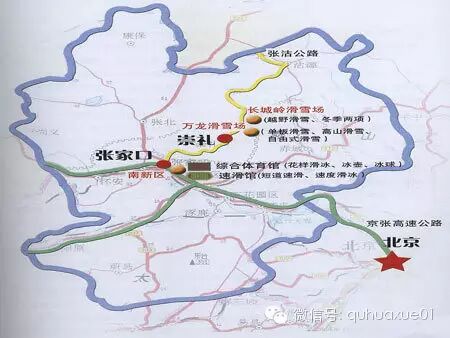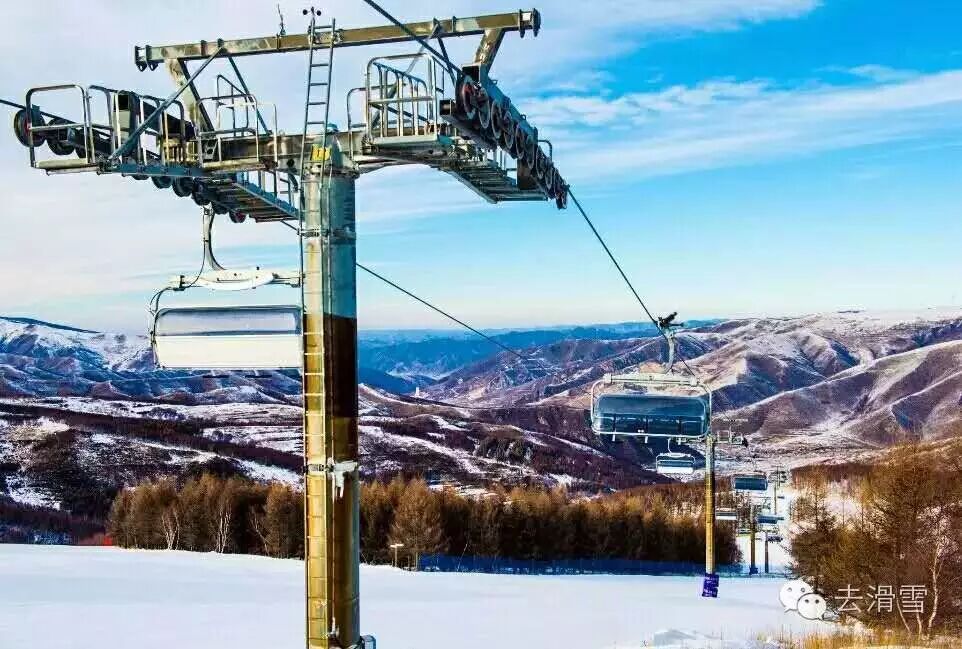Beijing to Bid for 2022 Winter Olympics; Zhangjiakou Likely to Become Skiing Hub

Yesterday afternoon around 6 p.m., the International Olympic Committee officially announced the list of candidate cities for the 2022 Winter Olympics—the 24th edition of the Games. Beijing will compete alongside Oslo, Norway, and Almaty, Kazakhstan, to secure the hosting rights for the 2022 Winter Olympics.
According to the official Weibo account "Beijing Release" of the Beijing Municipal Government News Office, Beijing's joint bid with Zhangjiakou to host the 2022 Winter Olympics marks China's third attempt to secure a top-tier international event—following the 2008 Beijing Olympics and the 2010 Shanghai World Expo. If the 2022 Winter Games are indeed held in Beijing, the city will become the "first-ever" metropolis in history to have hosted both the Summer and Winter Olympic Games.
The Beijing-Zhangjiakou Expressway will connect three venues.
The 2022 Winter Olympics are planned to be held along a corridor stretching from Beijing's urban area through Yanqing to Zhangjiakou, with competition and non-competition venues arranged across three distinct zones, forming three relatively concentrated venue clusters. The first cluster is located in the northern part of Beijing’s city center, centered around the Olympic Central Area, as well as the Capital Indoor Stadium and the Wukesong Sports Center in the western part of the city. The second cluster will be situated in the mountainous region of Yanqing County, northwest of Beijing, where temporary facilities will be constructed directly leveraging the natural terrain for events like bobsleigh, skeleton, and alpine skiing. The third cluster is set up in the Prince City area of Chongli County, Zhangjiakou City, Hebei Province, an area with decades of rich history in ski sports.
According to what we know, construction of the transportation infrastructure connecting the three venue clusters has fully kicked off. Currently, the Beijing–Tibet Expressway (G6), Beijing–Xinjiang Expressway (G7), and National Highway 110 (G110) already link the three areas. The Beijing-Zhangjiakou High-Speed Railway, which will connect these regions, was approved and officially approved by relevant Chinese government authorities back in 2013. Construction is expected to begin within 2014, with completion and opening to traffic anticipated around 2017. Once operational, the railway will enable travelers to reach the Yanqing competition zone from central Beijing in just 20 minutes, while the Chongli Taizicheng zone in Zhangjiakou can be accessed within an hour. Notably, none of the three venues are located in the core urban areas, ensuring that hosting the Winter Olympics won’t place excessive strain on the region’s transportation network.
All 2008 Olympic venues are fully operational.
Sun Baoli, a doctoral supervisor at Beijing Sport University and an Olympic research expert, stated that the International Olympic Committee places greater emphasis on a city's overall strength when selecting host cities for events. Compared to the other two candidates, Beijing boasts numerous advantages. Notably, public support for Beijing's bid to host the Winter Olympics is the highest among the three candidate cities. Yang Shuan, Vice Chairman of the Beijing Winter Olympics Bid Committee and Deputy Director-General of the General Administration of Sport of China, added that public approval in both Beijing and Zhangjiakou has also surged to over 90%. Moreover, strong backing comes not only from the central government but also from local authorities. Historically, public and governmental support have proven to be crucial factors in ensuring a successful bid.
Beijing’s biggest advantage is having successfully hosted the 2008 Olympic Games, earning international recognition for its ability to organize major global events—and, importantly, accumulating valuable experience in event management. Moreover, many of the venues from the Olympics can be repurposed: for instance, the iconic Bird’s Nest, the Capital Indoor Stadium, and the Wukesong Arena have all been retrofitted with ice-making capabilities, making them fully ready to host winter sports competitions. If Beijing were to host the upcoming Winter Olympics, it would only need to build a handful of new venues—aligning perfectly with the growing global trend toward hosting events in a cost-effective and sustainable manner.
Zhangjiakou Could Become a Skiing Hub
Sun Baoli stated that if Beijing successfully bids for the 2022 Winter Olympics, it will help popularize winter sports and encourage greater public participation. According to the Beijing Winter Olympics Bid Committee, securing this prestigious event would directly inspire 300 million people in North China and surrounding regions—especially young people—to take up winter sports. Additionally, it would promote Olympic education among the nation’s 400 million youth, inspiring and influencing an entire generation to engage in winter sports while simultaneously enhancing their overall quality of life.
Sun Baoli said that every international event leaves behind a legacy, and if the Winter Olympics are held in Beijing-Zhangjiakou, it will undoubtedly boost the city's development. Zhangjiakou boasts favorable natural conditions, with a ski season lasting over 150 days. Hosting the Winter Olympics would transform Zhangjiakou into a premier skiing destination.
Sun Baoli said that international events place high demands on the environment. If the bid is successful, the process of organizing the event will essentially act as a "humidifier" for air-quality management, providing significant support in this area. Moreover, hosting such a high-profile event itself demonstrates the government's determination and confidence in tackling air pollution.
Bidding Process
On November 3, 2013, the Chinese Olympic Committee officially wrote to the International Olympic Committee, nominating Beijing as the city to host the 2022 Winter Olympics. Beijing will be responsible for organizing the ice events, while Chongli County in Zhangjiakou City, Hebei Province, will host the snow events.
On July 7, 2014, Beijing was shortlisted as a candidate city for the 2022 Winter Olympics.
In January 2015, each candidate city will submit its final bid report.
In July 2015, the 127th International Olympic Committee Session will be held in Kuala Lumpur, Malaysia, to vote on the final host city for the 2022 Winter Olympics.
Fall in love with skiing—start by hitting the slopes!
Thank you for your attention.
![[Just for You] Do you really know which ski resort is right for you?](https://api.zsiga.xyz/mp-weixin-attachment/cover/19/400311161_1.jpg)

